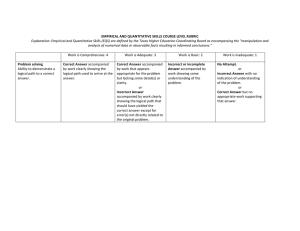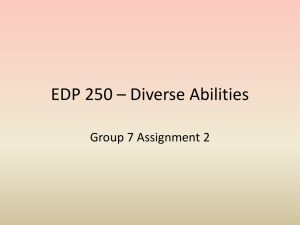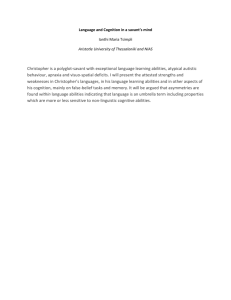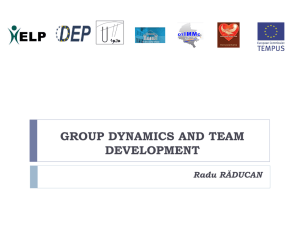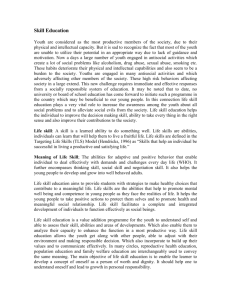memo factors - CHE Consult
advertisement
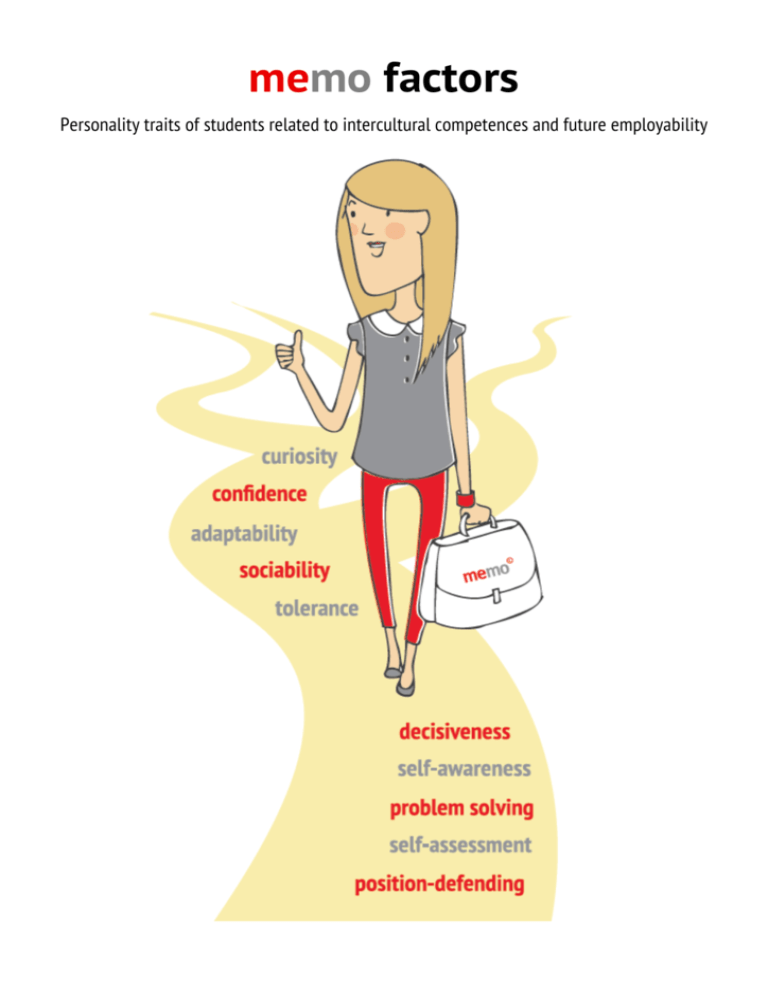
memo factors Personality traits of students related to intercultural competences and future employability Curiosity Decisiveness High values on this factor indicate that a person is not only open to new experiences but seeks them actively. This also applies to new academic challenges. Low values hint at an altogether more reluctant attitude towards new experiences and a greater appreciation of what is familiar. High values point to an active and decisive individual, who may have a critical attitude toward the content of his or her study programme. Low values suggest that the individual is more likely to reconsider his or her decisions to accommodate the opinion of others. Confidence Self-awareness High values on this factor point to a high degree of self-sufficiency and a strong conviction of one’s own abilities – aspects that may positively impact academic success. Individuals with high values on this factor may, however, also be inflexible and set in their ways. Low values show doubt about one’s own abilities and perseverance, which might be grounded in negative experiences or insecurity. High values indicate that the person is convinced that he or she can influence the outcome of their ambitions and efforts (such as study results), and that these are not a matter of luck or coincidence. This perspective is accompanied by a high self-awareness and a good assessment of what is expected. Low values not only suggest that a person does not feel that he or she really can make a difference with respect to the outcome of a certain task or situation, but they also feel a certain ambiguity about the demands and conditions of the task or situation. Adaptability An individual with high values deals well with negative experiences and therefore does not fear possible future setbacks. In the academic context, this goes along with physical well-being and a belief in one’s own ability. Students with low values on this factor feel exhausted and overwhelmed, which can be accompanied by further symptoms like sadness, sleeplessness or certain helplessness. Such students find it hard to find and accept help or support. Sociability High values refer to an individual who not only likes to socialize, but who cannot be alone very well. For these individuals, an active social life coincides with good emotional well-being. Low values show a person who does not like to mingle, but is better able to deal with negative feelings such as rejection and is less concerned about the opinion of others. Tolerance High values on this factor mean that a person is capable to tolerate the behaviour and values of other people without compromising his or her own values. Low values mean that a person feels very uncomfortable if confronted with other persons’ different values and ways of life. Such individuals may espouse a more traditional view of things, based on their own perspective and experience as influenced by family, society and established norms and values. Deviation from what is conceived as “normal” is perceived as threatening or at least discomforting. www.memo-tool.net www.che-consult.de Problem-solving High values reflect a “problem-solver” who does not like to delve into the insolvable aspects of a task but focuses on the doable, and also likes a challenge. Such individuals may either be very pragmatic in their approach to academic education, considering it as a means to solve practical problems, or else very theory-oriented in that they are attracted to problem-solving as an academic exercise. Low values reflect an individual who is well aware of problems or problematic aspects of a situation and might be more concerned with identifying the problem than with solving it. Accordingly, such an individual would be less goal-oriented and may have an altogether less futureoriented perspective on things. Self-assessment High values on this factor indicate that a person knows his or her strengths and weaknesses. This good self-assessment not only leads to a more relaxed relationship to other people or new demands, but also might prevent disappointments with the higher education institution. Low values, on the other hand, suggest an altogether higher stress level that can be caused by a misjudgement of one’s own abilities, accompanied by troubles to understand the demands and requirements of the study programme. Position-defending High values characterize an individual who engages easily in and enjoys discussions, feels passionately about things and also does not hesitate to voice his or her opinion in an academic environment. An individual with low values keeps his/her opinion to him/herself, not only because of a less strong conviction but also in order to avoid confrontations. Such an individual is more hesitant to engage in discussions in seminars.

